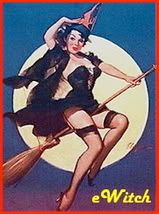As many of you know one of my fondest activities is tending my garden. I have long awaited this spring and the warmth to return so that I could once more venture outdoors. This spring I have planted more than in previous years. Also as the fruits of my previous years efforts began to spring forth, I realized that it was going to be quite a colorful spring. It seems that my efforts to harvest and replant as many seeds as I could from the previous year is starting to show some progress. The pond is encircled with a variety of wild flowers as well as the small gardens I have scattered throughout my yard. I will say that I give much credit for my great abundance to the wee folk or faery that reside in the woods that surround me. I have asked that they help to tend my gardens and in turn I have helped them when needed as much as one can. It seemed only fitting that the bulk of my festivities this Beltane be focused towards them.
I had tended my garden under the Elm, a special place of theirs. Earlier in the season I had cleared out an area and planted more of a variety of flowers for them to enjoy. Foxglove, english daisies, Bleeding hearts, and many more were scattered across the area. Throughout the area I set up small solar lights to give a subtle glow. As May Eve began, I was sure to set out an extra special treat for them to enjoy as they celebrated the coming of Beltane. Fresh cream and freshly made butter with honey drizzled across the top were nestled underneath the tree where I always place my offerings to the fae. I lay some choice flowers along side for decoration as well as for an extra edible treat. Before exiting I gave a quick blessing and bid them a hearty celebration and left them to their festivities.
The next morning cleaning up from the night before, I found a shiny red stone. Occasionally they leave treats for me. I have found special bird feathers, stones, and other things with no explanation as to how it could have gotten there. I keep them all in a special place as I truly beleive they are gifts from the wee folk. I then hung the ribbon, beads, and other colorful items from the branches of the trees. I made sure that ample seed was there for the birds to enjoy as I also think they enjoy this time also. Once again a short blessing as well as a request for blessings on the planting that had been done.
I know that it is not how most spend their Beltane, yet it was a delight for me to share it with the fairy. I feel I have been blessed with a magical place to enjoy and because of this I wish to do what I can to help it thrive. I did enjoy a nice glass of wine with my choosen "consort" (Vincent of course). And in our own manner we enjoyed the time and what it represents. It was a pleasant way to welcome in the growing season. I hope that all of you likewise had a joyful and fulfilling experience. Each enjoying it in your own unique manner. Blessings



 Soft you now!
Soft you now!


